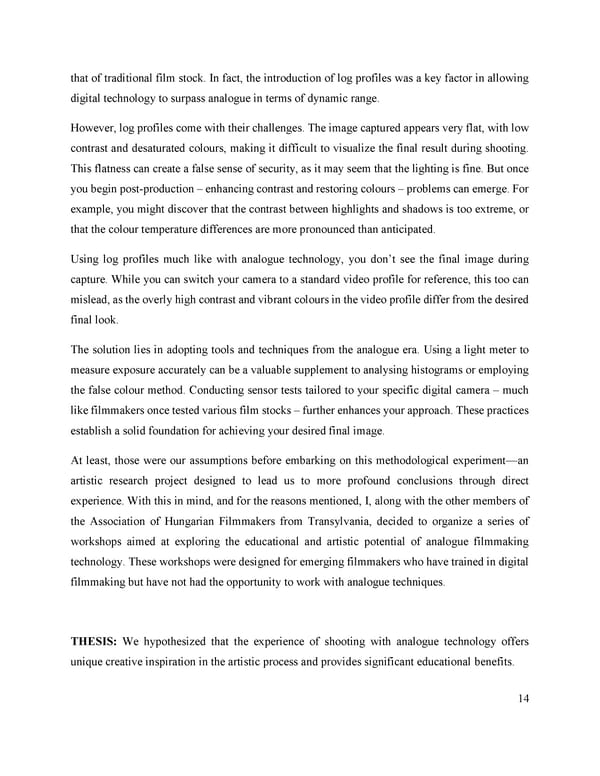that of traditional film stock. In fact, the introduction of log profiles was a key factor in allowing digital technology to surpass analogue in terms of dynamic range. However, log profiles come with their challenges. The image captured appears very flat, with low contrast and desaturated colours, making it difficult to visualize the final result during shooting. This flatness can create a false sense of security, as it may seem that the lighting is fine. But once you begin post-production – enhancing contrast and restoring colours – problems can emerge. For example, you might discover that the contrast between highlights and shadows is too extreme, or that the colour temperature differences are more pronounced than anticipated. Using log profiles much like with analogue technology, you don’t see the final image during capture. While you can switch your camera to a standard video profile for reference, this too can mislead, as the overly high contrast and vibrant colours in the video profile differ from the desired final look. The solution lies in adopting tools and techniques from the analogue era. Using a light meter to measure exposure accurately can be a valuable supplement to analysing histograms or employing the false colour method. Conducting sensor tests tailored to your specific digital camera – much like filmmakers once tested various film stocks – further enhances your approach. These practices establish a solid foundation for achieving your desired final image. At least, those were our assumptions before embarking on this methodological experiment—an artistic research project designed to lead us to more profound conclusions through direct experience. With this in mind, and for the reasons mentioned, I, along with the other members of the Association of Hungarian Filmmakers from Transylvania, decided to organize a series of workshops aimed at exploring the educational and artistic potential of analogue filmmaking technology. These workshops were designed for emerging filmmakers who have trained in digital filmmaking but have not had the opportunity to work with analogue techniques. THESIS: We hypothesized that the experience of shooting with analogue technology offers unique creative inspiration in the artistic process and provides significant educational benefits. 14
 Lost Analogue: Exploring Film, Music, and Interdisciplinary Methods in Education Page 14 Page 16
Lost Analogue: Exploring Film, Music, and Interdisciplinary Methods in Education Page 14 Page 16